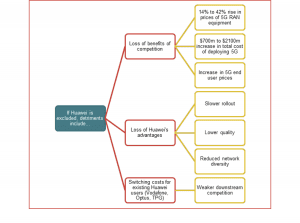The Australian offices of Frontier Economics will be closed from 5pm Monday 24 December 2018 and will re-open at 9am on Wednesday 2 January 2019.
The Singapore office of Frontier Economics will be closed for the public holidays of Tuesday 25 December 2018 and Tuesday 1 January 2019.
We wish you all a Merry Christmas and hope you enjoy the festivities of the holiday season.
For more information, please contact:
Contact Us
The Australian Energy Council (AEC) published a report prepared by Frontier Economics consultant, Rajat Sood, on the impact of a range of changes to electricity technology, market architecture and supporting infrastructure on the structure and competitiveness of the NEM.
The report found that these developments are likely to:
- Help smooth wholesale price volatility in both the short term and in the medium to longer term
- Reduce the advantages of the vertically-integrated ‘gentailer’ business model and
- Encourage more competitive behaviour in the NEM wholesale market, leading to more efficient and cost-reflective dispatch and pricing outcomes.
Accordingly, these changes should address many of the concerns that have recently been raised by policy-makers and regulators about competition in the wholesale market and hence avoid the need for the policy and regulatory changes presently being considered.
The report is available on the AEC website.
For more information, please contact:
Contact Us
In August 2018, the Australian Government determined that Huawei would not be allowed to participate in procurements to supply 5G network equipment to Australia’s mobile network operators.
Prior to this decision, Frontier Economics was engaged by Huawei to consider the economic impact of excluding Huawei from these procurements.
We found that the cost to industry and consumers of reduced competition from excluding Huawei will be high. We estimate that the exclusion of Huawei will increase the cost of 5G radio access network (RAN) deployment in Australia by up to (AUD) $2.1 billion, which will be recovered from consumers through higher retail prices. Further, for networks already using Huawei for 3G and 4G equipment, additional switching costs could add several billion dollars and materially delay 5G deployments.
Competition drives consumer benefits
Competition between Australia’s mobile network operators has produced a vibrant and dynamic market for mobile services. Prices for mobile phone services have fallen by an average of 4.2 per cent annually since 1997–98, while Australia ranks in the top 5 in the OECD for mobile penetration. The exceptional outcomes for Australian mobile users have been underpinned by competition between global equipment vendors to supply network equipment – through the various generations of mobile services.
While competition in the global market for supplying radio access network (RAN) equipment is intense, the market is highly concentrated, comprising three large equipment makers (Huawei, Nokia and Ericsson), and a smaller competitive fringe. This is because the scale of R&D spending required to continually improve performance is very large – globally, Huawei spent almost USD$12 billion on R&D in 2016/17 (substantially more than both Nokia, approximately USD$5.6 billion, and Ericsson, approximately USD$3.8 billion (USD).
Excluding Huawei or other vendors will lessen competition and create other detriments
Competition between network equipment vendors produces lower equipment prices, better quality and, ultimately, better services for end users.
Excluding Huawei - or other vendors - from the supply chain would create very material risks of uncompetitive procurements for Australian networks. The concentrated market means there are few alternative vendors with the necessary expertise and scale to provide 5G network equipment. This reduction in competition would substantially increase network procurement costs and retail prices, to the disadvantage of Australian consumers.
There would also be other costs from excluding Huawei. This includes the loss of its particular quality attributes, and additional switching costs for mobile networks that have to change vendors where Huawei has been a key supplier. The detriments are summarised in the figure below.
Detriments arising from excluding Huawei from Australia's 5g network deployment

For more information, please contact:
Contact Us

